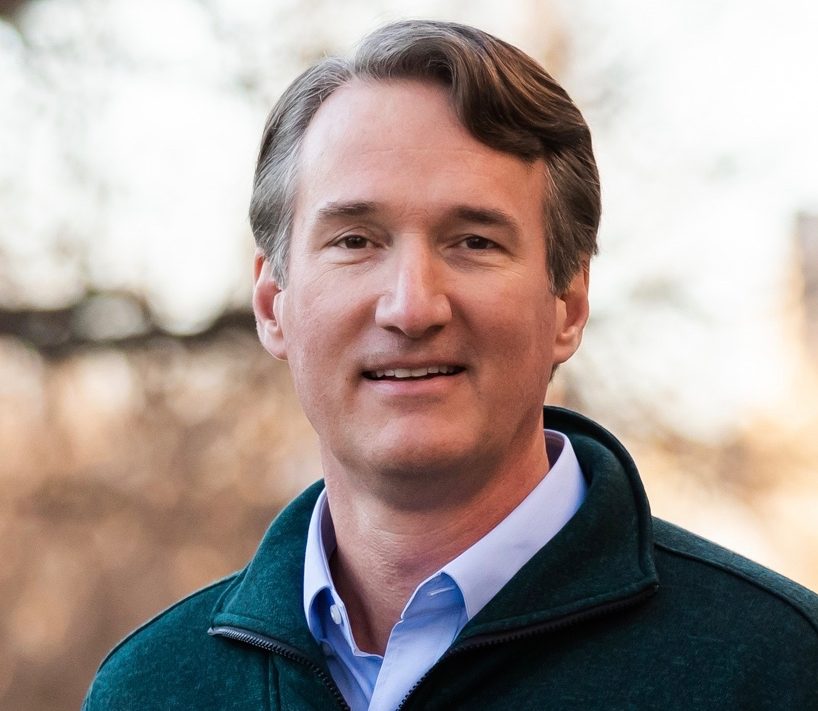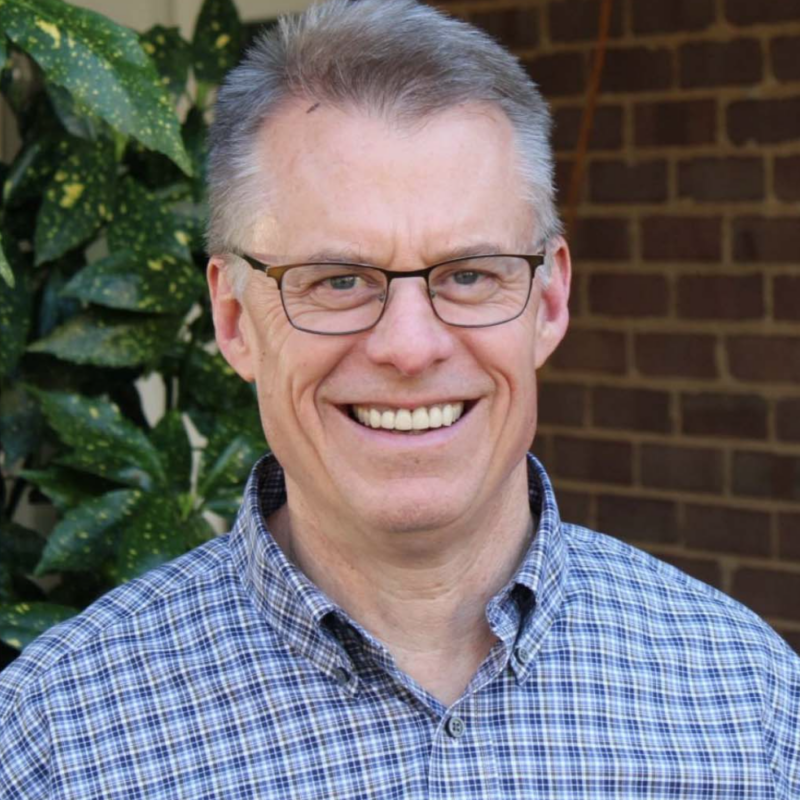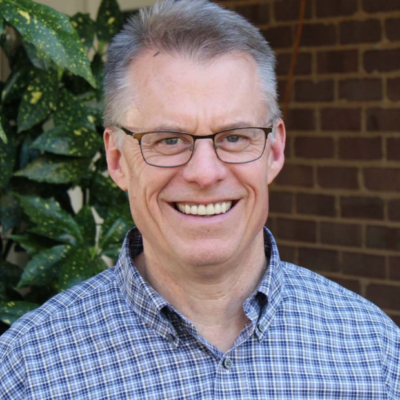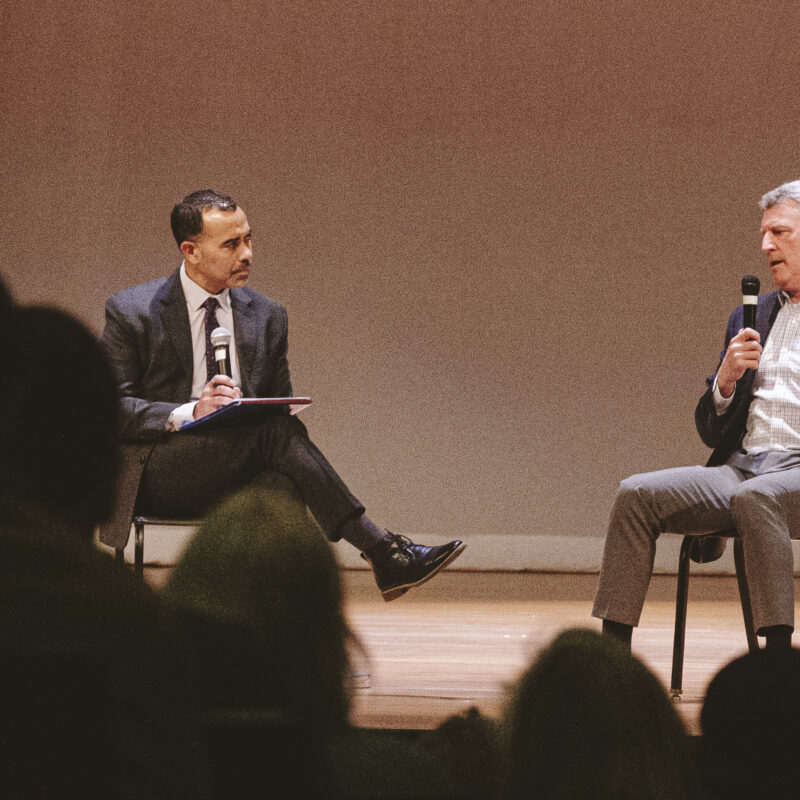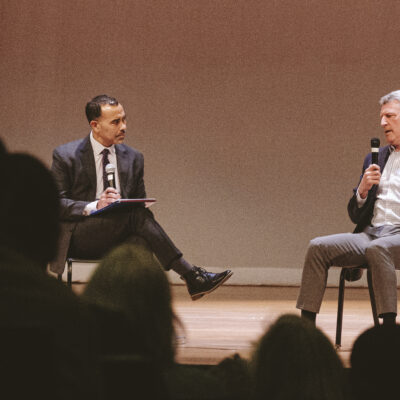Since Gov. Glenn Youngkin’s administration announced its proposed transgender student policy on September 16, thousands of students, parents of transgender children, and LGBTQ+ activists and supporters across the state have protested against it.
The threat of increased suicides among transgender youth pushed Sigma Omicron Rho, the University of Virginia’s only queer and gender-inclusive fraternity, to take immediate action.
“When we saw these policies, [Sigma Omicron Rho] sat down as an organization and asked ourselves if we would have lived through this policy—and a lot of us weren’t sure. Because a lot of us come out of homes that it would not have been safe for us to be out in those homes,” says third-year student Oliver Lesher, who is transgender. “A lot of us had to wait until college to even begin our transitions.”
“To us, this was a life or death issue,” he adds.
On September 20, Sigma Omicron Rho partnered with three other queer organizations at UVA—the Queer Student Union, Lambda Law Alliance, and oSTEM—to form the Virginia Collegiate Queer Collective, combining their resources, efforts, and numbers to fight the governor’s policy and other anti-queer legislation in the state. Since then, two queer organizations at the University of Richmond have also joined the collective. The group is currently in negotiations with around seven queer organizations at other universities across the state, including George Mason, Christopher Newport, and Virginia State.
UVA has more queer organizations than many other Virginia schools, so “we wanted to use that privileged position to foster a sense of leadership and community,” explains Lesher, VCQC’s outreach director.
Youngkin’s controversial policy would force transgender students to participate in school programing and use facilities based on the sex they were assigned at birth. School staff would also be prohibited from referring to transgender students by their preferred name and pronouns unless a parent submits legal documentation of their gender identity, and requests in writing that their child’s name and gender be changed on official school records. Even with parental permission, staff would not be required to use a student’s name and pronouns if it goes against their beliefs.
“With these policies, no trans kid will be able to safely live their truth, [or] come out to their families when they’re ready to,” says Lesher. “The idea that these kids now won’t have a safe space at home and at school, it’s devastating.”
Over the past month, the collective has hosted two public comment workshops at UVA for law school and undergraduate students, educating them on the importance of public comments, and providing frameworks for them to use to write their own comment. The group plans to host another workshop at the medical school.
“Once I think the model policies inevitably get adapted, then we’re also going to start shifting our focus to empowering people to make public comments at school board meetings when model policies are up for adoption at that level,” says Spencer Haydary, VCQC’s legal/policy director and a UVA law student.
Members are currently meeting with LGBTQ+ centers across Virginia—with a focus on those in rural areas that do not receive as much support as those in bigger cities—and planning fundraisers to help provide centers with critical resources, in collaboration with the ACLU, Equality Virginia, Side by Side, and other LGBTQ+ state organizations.
“All of the rights that we have as cisgender gay people are because of the work of Black and brown trans people,” says Haydary. “Governor Youngkin and the Republican party have made it very, very clear that they are going after us one by one as a community—and so we need to stop it here.”
The policy’s 30-day public comment period will end on October 26, after which the state superintendent will decide whether or not to approve the policy.
